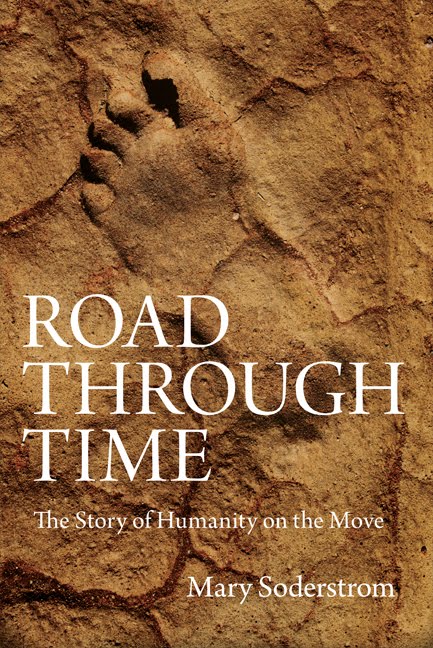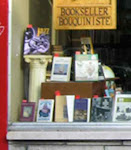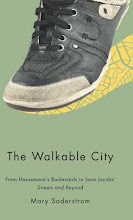Friday 1 August 2008
Cormac McCarthy's The Road II: What Is Missing Is the Force That Through the Green Fuse Drives the Flower
In this summer of luxuriant growth, I find myself thinking again of Cormac McCarthy’s The Road. It is not clear in the story how long has passed since the grand cataclysm which has swept away civilization and normal life. We are told that it occurred before the boy at the center of the story was born, and he is clearly 8 or 9 as he and his father trudge across a moonlike landscape, past smoldering forest fires to the lifeless sea. The sole rays of hope in the story are the tender way his father guards him, and the family which welcomes him at the end.
McCarthy apparently lives in the America Southwest now, and I suspect that dry landscape has strongly influenced his vision of what would lie beyond the end of the world. Nothing grows in The Road except for a few mushrooms, and evil in the heart of the cataclysm’s survivors. Despite rain and snow, the man and the boy encounter no signs of new greenery, no sprigs of grass, not even a blasted, genetically damaged lichen. Yet if anything is clear from a study of disaster sites around the world, it is that life will continue, although it may not be life as we know it or desire it.
Plants are thriving this summer here, pushing up through cracks in pavement, taking root on roofs that haven’t been regularly maintained, growing tall in any unused lot. Given enough water and a period of warmth, plants of some kind or another are unstoppable.. The fields and forests around Chernobyl bear witness to this force that through the green fuse drives the flower, as Dylan Thomas put it. So does the volcanic landscape of Mt. St. Helens in Oregon. Within five years the scree and ash had been colonized by the first plant invaders on the mountain sides scorched by a great eruption in 1980.
In the dry Southwest reconstruction of landscape after disaster takes longer, but it still takes place. McCarthy makes no nod toward that fact. Instead his story is a black and white version of what may happen in the hearts of men. The “happy” ending is contrived, tacked on the way the rescue scene at the end of The Lord of the Flies is. If McCarthy had intended to leave us with a glimmer of hope, he would have done better to show us the power of green growth.
McCarthy apparently lives in the America Southwest now, and I suspect that dry landscape has strongly influenced his vision of what would lie beyond the end of the world. Nothing grows in The Road except for a few mushrooms, and evil in the heart of the cataclysm’s survivors. Despite rain and snow, the man and the boy encounter no signs of new greenery, no sprigs of grass, not even a blasted, genetically damaged lichen. Yet if anything is clear from a study of disaster sites around the world, it is that life will continue, although it may not be life as we know it or desire it.
Plants are thriving this summer here, pushing up through cracks in pavement, taking root on roofs that haven’t been regularly maintained, growing tall in any unused lot. Given enough water and a period of warmth, plants of some kind or another are unstoppable.. The fields and forests around Chernobyl bear witness to this force that through the green fuse drives the flower, as Dylan Thomas put it. So does the volcanic landscape of Mt. St. Helens in Oregon. Within five years the scree and ash had been colonized by the first plant invaders on the mountain sides scorched by a great eruption in 1980.
In the dry Southwest reconstruction of landscape after disaster takes longer, but it still takes place. McCarthy makes no nod toward that fact. Instead his story is a black and white version of what may happen in the hearts of men. The “happy” ending is contrived, tacked on the way the rescue scene at the end of The Lord of the Flies is. If McCarthy had intended to leave us with a glimmer of hope, he would have done better to show us the power of green growth.
Subscribe to:
Post Comments (Atom)


















No comments:
Post a Comment